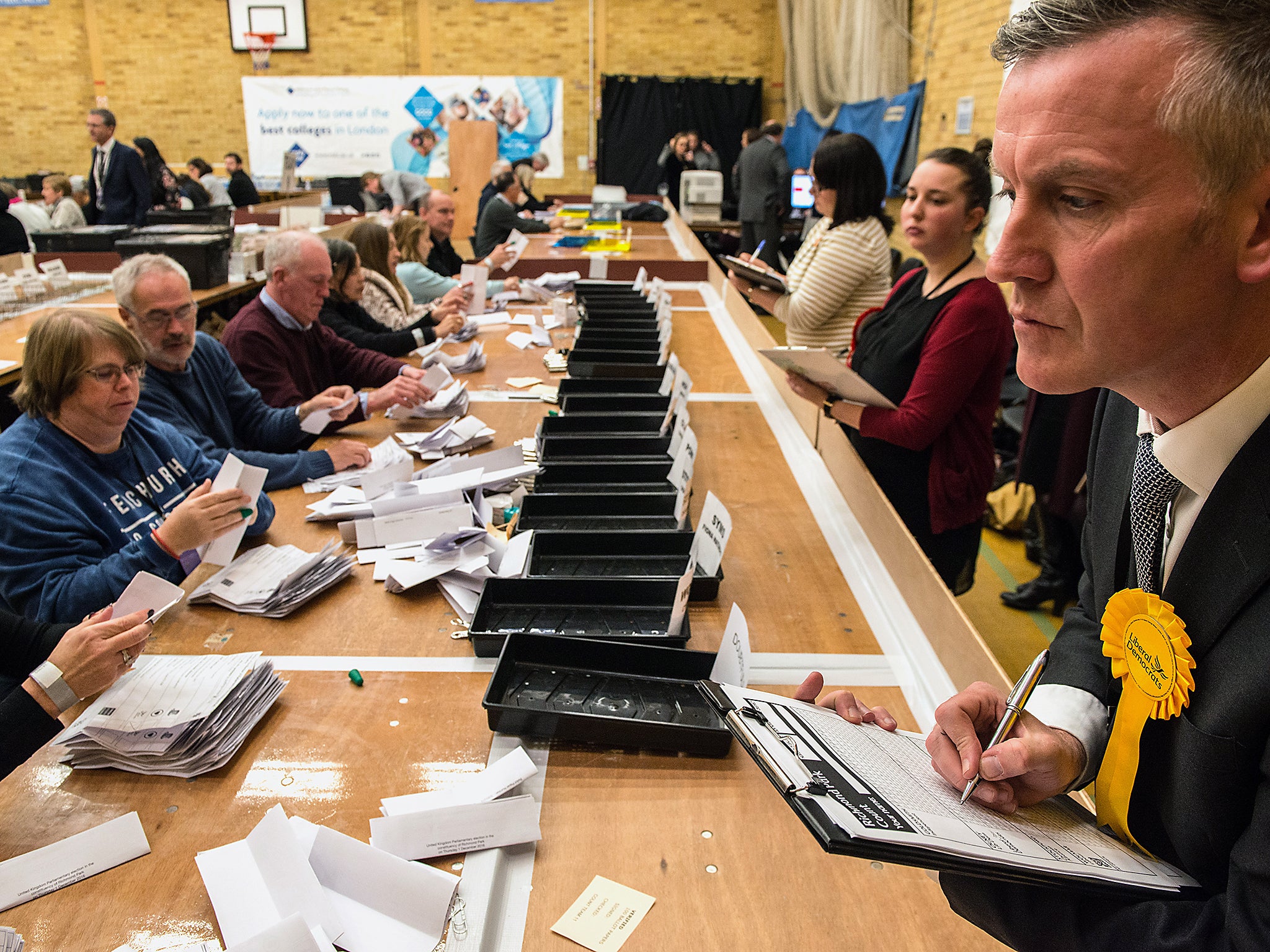This is the truth about whether a Liberal Democrat resurgence in the upcoming general election is realistic
The Lib Dems, despite being crushed in the last general election, still have a constituency-targeting organisation that is second to none. And their media and campaigning operation is as slick as a greyhound


One Conservative MP who cannot be pleased with Theresa May’s decision to call an early election is Tania Mathias, the Member for Twickenham, who won the seat by defeating Vince Cable, the Liberal Democrat cabinet minister, two years ago.
Now Sir Vince has announced that he would like to fight the seat again, and he hopes to repeat the success of Sarah Olney, who won the neighbouring Richmond Park on an anti-Brexit platform in a by-election last year.
Tim Farron, the Lib Dem leader, sees the general election as a huge opportunity to mobilise the 48 per cent who voted to remain in the EU in the referendum and to scrape his party off the floor where it ended up in 2015. There is no doubt that the party will improve on its 8 per cent share of the vote and eight MPs (now nine with Olney), but by how much? And is it possible that the party could break through to challenge Labour as the main opposition?
There are good reasons for thinking the Lib Dems could do very well – good enough to persuade Sir Vince to return to the fray at the age of 73:
The anti-Brexit party
The Lib Dems have adopted a clear position of opposing Brexit and trying to do anything to frustrate it, including demanding a second referendum on the terms of the exit deal. This does not appeal to all of the 48 per cent who voted to Remain. Opinion polls suggest that about half of Remainers accept the referendum vote and want the Government to get on with it, but 22 per cent of voters think that the referendum decision ought to be reversed.
A lot of these hard Remainers feel strongly about the EU and provide the Lib Dems with a ready-made core of activists and enthusiasts, including many defectors from Labour who are disillusioned with the official Opposition’s cautious acceptance of Brexit.

The party’s media operation
The Lib Dems have a media and campaigning organisation as sleek and fast as a greyhound. It is so slick that journalists were commenting on it last week, saying it was better than Labour’s leaden press operation. Yesterday, the contrast was illuminated in bright searchlights. Within minutes of Theresa May’s election announcement, a response from Tim Farron was emailed to journalists and Farron himself was interviewed moments later.
Jeremy Corbyn’s response wasn’t slow – it took 40 minutes to issue a statement and a bit longer for an interview – but it was much slower than the Lib Dems’.
The Lib Dems, despite being crushed in the last general election, still have a constituency-targeting organisation that is second to none. It did well in the Witney by-election before scoring a stunning success in Richmond Park. A general election is harder, but they have the machine that can focus on, say a dozen target seats.
Boost from local elections
The Lib Dems are likely to do well in the local elections on 4 May, which will mark the start of the five-week general election campaign. A big Lib Dem advance in their natural local government habitat, bouncing back from being punished for being part of the Tory coalition government, will give Farron momentum.
However, there are also reasons for thinking the Lib Dem advance might be limited:
Limited broadcast time
For all the commentary about elections now being fought out on social media, TV remains the most important means by which most people know about politics. It is not just election broadcasts that are allocated by a formula based on the previous election – and to a lesser extent on other elections and opinion polls – but all broadcasters are under a legal obligation to balance their news coverage and programming generally. That means the Lib Dems are at a severe disadvantage, because they won just 8 per cent of the votes last time, and their current average in the opinion polls is still only 11 per cent.

Pro-Brexit target seats
The Lib Dems are poised to win back a string of Conservative seats in south-west England, according to a strange report recently of alleged private Tory party polling. This sounds most improbable. If the Lib Dems are going to fight as the anti-Brexit party, the deeply Eurosceptic south-west seems a strange place to do it.
Many of the seats the Lib Dems lost in 2015 voted to leave the EU in the referendum (see Chris Hanretty's list here), and will be hard to win back. In strongly Remain constituencies in London, such as Twickenham, and in university towns, such as Labour Cambridge, the Lib Dems have their best hopes. But, if you study the list of Lib Dem target seats, there are not as many of them as Farron might hope.
Join our commenting forum
Join thought-provoking conversations, follow other Independent readers and see their replies
Comments
Bookmark popover
Removed from bookmarks